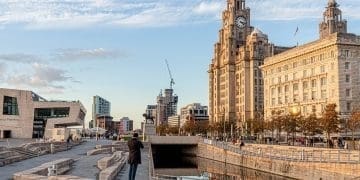The government is gradually announcing measures to help the country cope with the coronavirus (Covid-19) pandemic. One plan, aimed at small and medium-sized businesses (SMEs), is the Coronavirus Business Interruption Loan Scheme (CBILS). But questions have already arisen over just how helpful this scheme will actually be.
Government support for SMEs?
The government describes its assistance as:
A package of temporary, timely and targeted measures to support public services, people and businesses through this period of disruption caused by COVID-19.
Within this, the CBILS offers SMEs the ability to take out loans of up to £5m. The government says it will: “provide lenders with a guarantee of 80% on each loan… to give lenders further confidence in continuing to provide finance to SMEs”. On the face of it, this sounds like good news. Government-secured loans to enable SMEs to weather the storm.
Buyer beware
The British Business Bank, which the government owns, is backing the scheme. In its CBILS guidance, it makes the point that “the borrower remains 100% liable for the debt”. Times business journalist James Hurley unpacked the consequences of this in a Twitter thread:
There's lots of confusion around the government's emergency loan scheme that was launched today. The most important thing for business owners to remember is: forget about the 80% government guarantee. It is NOT for your benefit. It is to give the bank the confidence to lend.
— James Hurley (@jameshurley) March 23, 2020
Hurley warns that some banks may suggest to potential borrowers that the government guarantee covers them. Whereas, he says, the guarantee is entirely for the benefit of the banks, to encourage them to lend. Hurley stresses that business owners could find their own personal assets at risk if they can’t keep up repayments in the future. This is because some lenders are including personal guarantees in their agreements.
As BBC economics correspondent Andy Verity explains, there are big differences in how different lenders are interpreting the scheme. Verity identifies HSBC and Barclays as two banks which are demanding personal guarantees from business owners who want to use the CBILS. This could mean the banks are able to seize any assets except the business owner’s house in order to recoup their losses. The government would then reimburse the bank with 80% of the amount still outstanding. But Royal Bank of Scotland is making no such demands, which Verity says proves “that more generous terms can be offered”. He claims: “The other banks will now come under pressure from business customers to copy RBS”.
Government support for the banks
Verity quotes business owner and head of the SME Alliance Andy Keats’s response to the situation: “Yet again, it is the banks and not businesses who will receive the funds to help SMEs”. Keats summed it up:
As things stand, the proposed loans mean the banks have no risk, the government has a small risk and businesses and their officers have 100% risk.
Further proof that we’re in strange times, beyond the BBC criticising banks, comes with Conservative MP Kevin Hollinrake pointing out the confusion in the government’s policy. Hollinrake, who chairs the All Party Parliamentary Group (APPG) on Fair Business Banking, says he asked Treasury chief secretary Steve Barclay if the CBILS would include personal guarantees. Barclay said it wouldn’t, but it appears that it does. Both Hollinrake and the APPG have demanded that personal guarantees are banned, saying the situation is “unprecedented”.
It seems at least some Tories are starting to see the shortcomings of always putting banks first.
Featured image via Pexels – Expect Best









